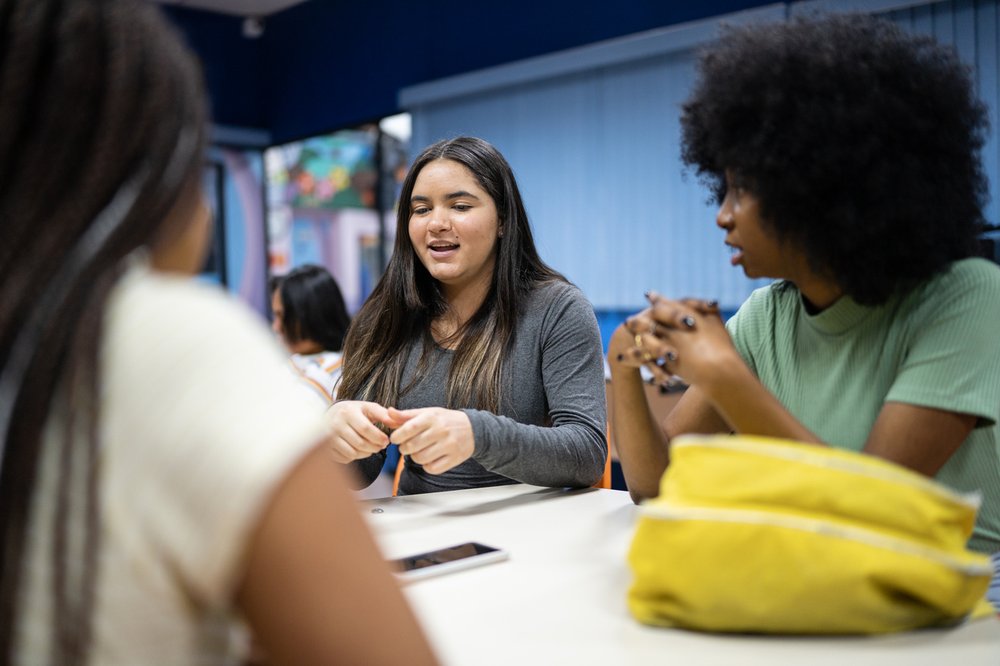Above and beyond: How teachers fill gaps in the system to keep children learning

More children are struggling at school because of increased pressures outside school. Our report presents teachers’ experiences of supporting these children.
All children need their social, emotional, and physical needs met to be able to create a firm foundation on which to experience a happy childhood and achieve their full potential.
But an increasing number of children are experiencing challenges to making the most out of school.
We carried out a nationally representative survey of over 7,000 teachers to find out how many children are facing barriers to their education because of issues outside school, what the most common issues are and how they’re impacting children’s outcomes.
We also conducted eight supplementary interviews to gather teacher’s in-depth experiences.
There are a high number of children experiencing barriers to their education.
There could be over 3.3 million children experiencing barriers to their education because of issues outside school. This is 37% of all pupils in England, or nine pupils in an average class of 25.
Teachers in the most deprived areas were nearly five times as likely to report that at least half of their students faced barriers to their education.

Many challenges children experience stem from issues at home and are interlinked.
According to teachers, the top three most common issues faced by students are:
- Living in an unstable family environment – reported by 66% of teachers.
- Behavioural or emotional issues – reported by 64% of teachers.
- Mental health challenges – reported by 53% of teachers.
Teachers shared that the issues children are experiencing are often at the family level including living an unstable family environment or poverty. Those challenges are then often linked to mental health, behavioural and emotional challenges, but not in all cases.

Schools are doing what they can to help children experiencing barriers.
This includes learning interventions, providing basic essentials (such as food and clothing) and wellbeing support.
But they are missing other services to be able to ‘lean on’ to help support children. Teachers shared that they are often the ‘first port of call’ for parents who don’t know where else to go to get help.
Services that would have been there or just places for young people have gone.
Secondary school teacher
Overall, support for children is limited.
Teachers reported having limited capacity, resources, and skillsets to support students experiencing issues outside school.
They also commented on a lack of support from external agencies which are also overburdened, have high thresholds and long waiting lists to access support for children both in and out of school.
Children clearly have additional needs, but we can't get an assessment because it's virtually impossible to get an assessment and a diagnosis through school. It baffles me that anybody actually manages to ever achieve it.
Primary school teacher

The impact of this is ultimately felt by children.
Just 2% of teachers felt that all their students experiencing barriers would reach their expected grades or level of achievement by the end of this academic year.
The additional work required to support children experiencing challenges outside school eats into teacher’s planning and break times, takes an emotional toll, and ultimately, hinders their ability to teach – and this has an impact on all children.
When you're not with them you’re worrying about them thinking, even though I feel like I'm at capacity, if I did this extra thing that could really make a difference.
Secondary school teacher
Action for Children works to support children and young people to reach their full potentials. This includes supporting children in schools who are showing early signs of needing help with their mental health, through our Blues Programme.
So far, we’ve delivered The Blues Programme in over 350 schools, to more than 13,100 young people. Outcomes include improved levels of confidence, relationships, self-esteem and involvement with learning.
Giving young people the tools they need to look after their mental wellbeing
This research shows how schools are stepping in where other services and systems are failing and demonstrates the impact this is having on both pupils and teachers.
A lack of services for children is preventing them from getting the most out of school.
A system-wide solution is needed to restore vital services around children, so they have the skills and capacity to meet children’s needs and create closer working relationships with schools.
We recommend the government should:
- Introduce a legal duty on local authorities to provide early help backed by significant funding.
- That duty should include the provision of multi-disciplinary family help teams.
- Promote the use of family liaison officers in schools by creating best practice guidance for the role.
- Commit to a timetable for making education a fourth statutory safeguarding partner in England.
- Support all local authorities to integrate their early help, early intervention, and family services so there’s ‘one front door’, building on the Family Hub model. This should include sufficient funding, a long-term vision and the sharing of best practice and learning.




